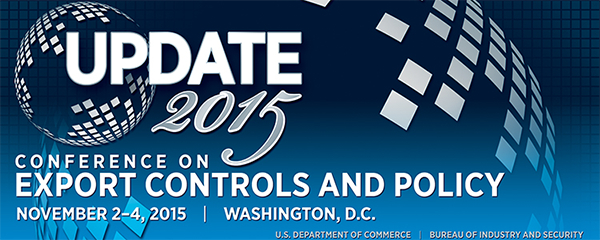![Taminco HQ via Google Maps [Fair Use] Taminco HQ via Google Maps [Fair Use]](https://www.exportlawblog.com/images/taminco_hq.jpg)
ABOVE: Taminco HQ
BUT FIRST A WORD FROM OUR SPONSOR …
I still have some invitations for free food and drink at the Bryan Cave reception at 6:00 pm on November 3 for people in town attending the BIS Update Conference (or anyone else for that matter). Email me at clif.burns@bryancave.com if you want one. It won’t be as much fun as that cruise that somebody else is doing for people attending the BIS Update 2015, but at least you can leave our event when you want to.
NOW BACK TO OUR REGULARLY SCHEDULED PROGRAMMING
As if there weren’t enough lists to check and agencies to fuss with and other requirements before exporting stuff, did you know about this list? Otherwise known as the Schedule of List I Chemicals, all the chemicals on that list are chemical precursors for the manufacture of methamphetamine. (Yes, apparently iodine and red phosphorus are used for that. Who other than Walter White a/k/a Heisenberg had any idea?)
If you are going to export anything on that list, the rules of the DOJ Office of Diversion Control require that you verify the identity and end user of the chemical pursuant to the procedures set forth in 21 C.F.R. § 1310.07. If part of a shipment goes missing, or if the exporter learns that an end-user might be cooking meth, section 1310.05 requires the exporter to report this “at the earliest practicable opportunity.”
Taminco, a Pennsylvania-based producer of chemical amines used as components in manufacturing everything from agrochemicals to fuel additives and animal feed did not verify the identity of its customers or report missing shipments in connection with exports of 100 tons of monomethylamine to Mexico. As a result, according to this report (subscription required), it has now been forced by DOJ to agree to pay $1.3 million in criminal and civil penalties. According to the DOJ Sentencing Memorandum the chemicals were worth only $210,234.07
The only consolation here is that nobody went to jail. I think that used to be called cold comfort. Â Once again, the moral of the story is this: export stuff at your own peril, something that has been known since the early days of the Roman Empire and nicely expressed in that well-known maxim: Caveat Exportor.

 Posted by
Posted by  Category:
Category: 


![Red Rug by Christopher Sessums [CC-BY-SA-2.0 (http://creativecommons.org/licenses/by-sa/2.0)], via Flickr https://flic.kr/p/x7H2Dp [cropped] Red Rug by Christopher Sessums [CC-BY-SA-2.0 (http://creativecommons.org/licenses/by-sa/2.0)], via Flickr https://flic.kr/p/x7H2Dp [cropped]](https://www.exportlawblog.com/images/persian_rug_co.jpg)
![All in a Day's Work by Damian Gadal [CC-BY-SA-2.0 (http://creativecommons.org/licenses/by-sa/2.0)], via Flickr https://flic.kr/p/5xQkWj [cropped] All in a Day's Work by Damian Gadal [CC-BY-SA-2.0 (http://creativecommons.org/licenses/by-sa/2.0)], via Flickr https://flic.kr/p/5xQkWj [cropped]](https://www.exportlawblog.com/images/jackpot.jpg)
![140515-D-VO565-003 by Chief of Joint Chiefs of Staff via Flickr https://flic.kr/p/nkMLsf [Public Domain - Work of U.S. Government] 140515-D-VO565-003 by Chief of Joint Chiefs of Staff via Flickr https://flic.kr/p/nkMLsf [Public Domain - Work of U.S. Government]](https://www.exportlawblog.com/images/china_us_flags.jpg)


